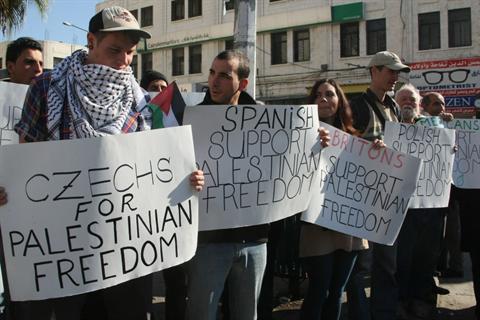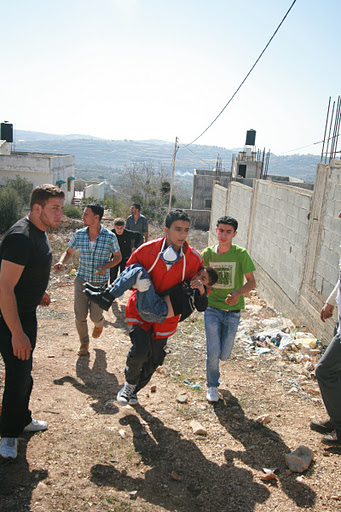Tag: Nablus
-
Nablus comes together for International Solidarity Day
by Wahed Rejol 29 November 2011 | International Solidarity Movement, West Bank Today in the Occupied West Bank, Palestinians and internationals gathered in Nablus to participate in an international day of support for Palestine. In 1977 the United Nations General Assembly voted to declare November 29 as the The International Day of Solidarity with the Palestinian…
-
Palestinian woman struggles for proper medical treatment
by Wahed Rejol 14 November 2011 | International Solidarity Movement, West Bank In 2004 Amal Jamal was sentenced to 12 years in Israeli prison. A year later the Palestinian woman from Nablus was diagnosed with ovarian cancer. Today from a hospital in Nablus she awaits a decision from Israel authorities that will determine whether she…
-
Illegal road closure in Kufr Qaddoum leads to arrests
by Thom Andrews 11 November 2011 | International Solidarity Movement, West Bank Today marked the 5th month of the village of Kufr Qaddoum’s campaign of non-violence against the Israeli military’s decision to illegally close their main road to Nablus. What began as another peaceful demonstration quickly transformed into a military assault on the village. Over 200…



